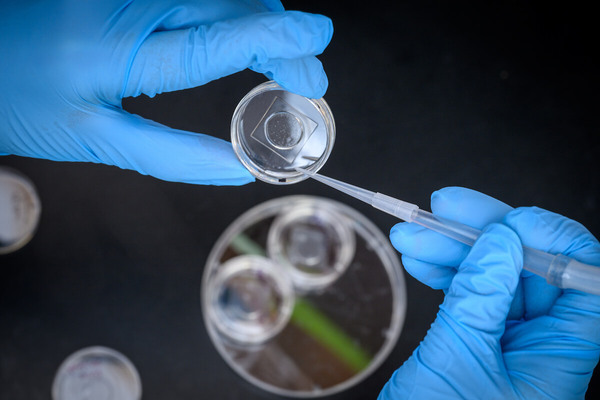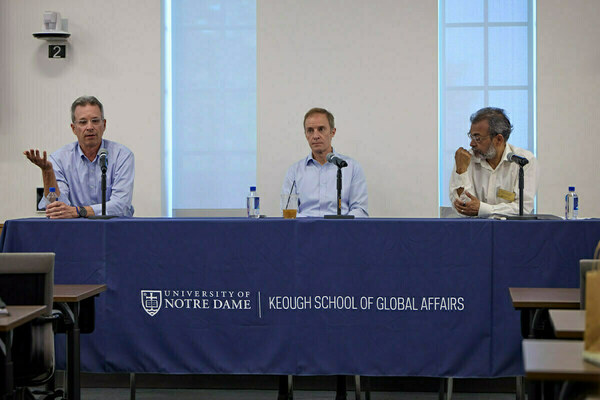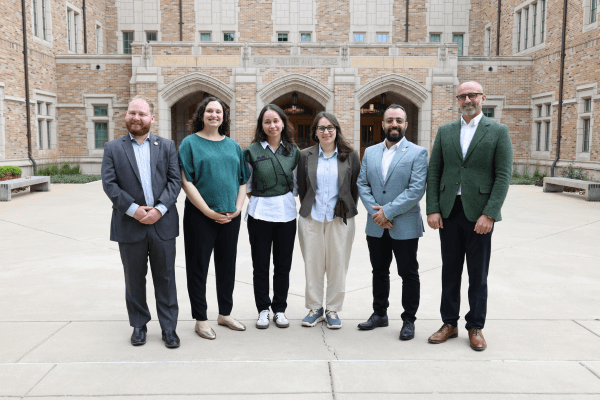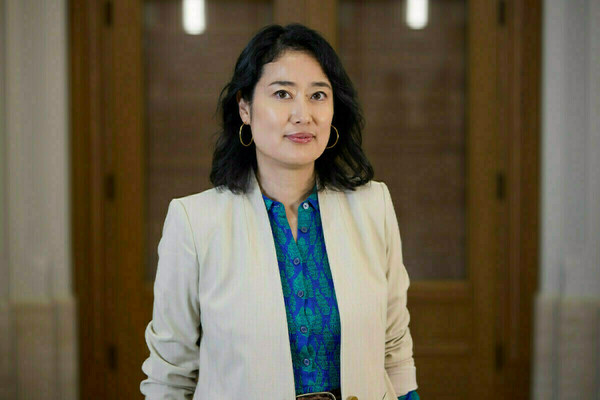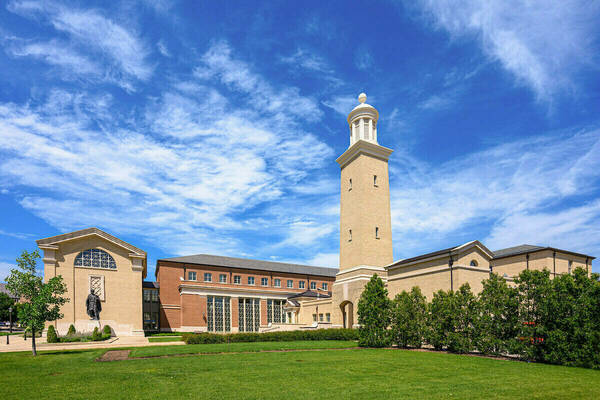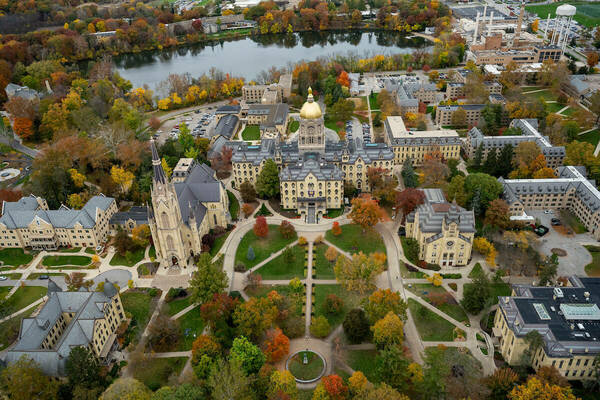Multi-unit research teams receive support for Bioengineering and Life Sciences projects
Three collaborative, multi-unit teams have been awarded funding by the University-wide Bioengineering & Life Sciences Initiative to advance health-related research and education.
To complement the investigator-led awards the initiative made earlier this year, the Bioengineering & Life Sciences Initiative introduced the unit-level matching grant program to incentivize centers, institutes, departments, and similar entities to collaborate on activities related to its research themes of health foundations, health technologies, and health equities.
Of the teams awarded funding, one will focus on addressing the opioid crisis, another aims to monitor and respond quickly to emerging diseases, and a third will involve undergrads in data science to study health technologies and solutions.
“Sometimes academic units can see broader opportunities missed by individual faculty members, and we want to be there to support their emerging efforts. Through these initial awards, we are proud to fund some really exciting and critical activities happening at the intersection of science and engineering,” said Paul Bohn, director of the Bioengineering & Life Sciences Initiative.
Addressing the opioid crisis

Notre Dame Serving Community Analytical Needs (ND-SCAN) will develop sensor technologies that healthcare providers, law enforcement, and harm reduction groups can use in the field to quickly and accurately identify high-potency synthetic opioids, cannabinoids, and other psychoactive substances in complex mixtures. These technologies will give caregivers, emergency responders, and health departments across Indiana and neighboring states critical information they need to address new substances infiltrating local illicit drug supplies.
ND-SCAN will use a new, 1,000-square-foot wet lab in McCourtney Hall as its headquarters to support the development of point-of-care and field technologies to address the opioid crisis and evaluate drug analysis technologies. ND-SCAN is led by Principal Investigator Nosang Myung, director of the ND Sensor Initiative, faculty director of the Analytical Science and Engineering at Notre Dame (ASEND) Core Facility, and the Bernard Keating-Crawford Professor of Engineering, and co-PIs Marya Lieberman, the Nancy Dee Professor of Cancer Research in the Department of Chemistry and Biochemistry, and Matthew Webber, acting director of the Berthiaume Institute for Precision Health and the Keating-Crawford Collegiate Professor in the Department of Chemical and Biomolecular Engineering.
Improving biological threat response

Notre Dame Biothreat Surveillance, Containment & Operational Preparedness Engine (ND-BIOSCOPE) is a partnership of several entities, including the Berthiaume Institute for Precision Health, the ND Sensors Initiative, the Remote Emerging Disease Intelligence Network (REDI-NET), and the Warren Center for Drug Discovery.
ND-BIOSCOPE aims to address challenges to tackling emerging pathogenic threats by closing critical weaknesses in the nation’s defenses, such as slow data sharing, outdated monitoring systems, and limited coordination between agencies. The project will enhance early warning systems and accelerate countermeasures by integrating cutting-edge sensor technologies, real-time genomic sequencing, and machine learning-driven analytics.
A key pillar of ND-BIOSCOPE is building a sustainable pipeline of expertise by equipping researchers, students, and global partners with the skills, tools, and training necessary to combat evolving biological threats.
Another important goal is training the next generation of experts. Through new courses, hands-on lab work, and field training, ND-BIOSCOPE will prepare students, researchers, and global partners to respond to the biological challenges of the future.
ND-BIOSCOPE is led by Principal Investigator Webber and co-PIs Myung, Nichole Achee, a research professor in the Department of Biological Sciences and an associate professor in the Eck Institute for Global Health, and Brian Blagg, director of the Warren Center for Drug Discovery and Development and Charles Huisking Professor of Chemistry and Biochemistry.
Developing data-driven solutions

The Health Data and Analytics Challenge (HDAC) will provide undergraduate students with the opportunity to analyze real-world datasets, detect population health differences, identify gaps in access that may affect health outcomes, and recommend possible interventions to improve health and the quality of services in various communities.
The Health Data and Analytics Challenge builds on the success of the Health Equity Data Science Challenge, which started in 2024. HDAC is expected to become an annual event and will produce data-driven solutions to pressing health issues. HDAC will showcase Notre Dame’s data science student pipeline to a panel of judges from industry, government, and academia. In collaboration with the Lucy Family Institute for Data & Society and the Berthiaume Institute for Precision Health, HDAC will amplify the mission of BELS to develop future generations of leaders who are equipped to advance human health through multidisciplinary teams, tools, and techniques.
HDAC is led by Principal Investigator Katie Liu, assistant director of research programs for the Lucy Family Institute for Data & Society, and Prakash Nallathamby, associate director of research for the Berthiaume Institute for Precision Health and an assistant professor of the practice.
Originally published by at strategicframework.nd.edu on September 05, 2025.
Latest Research
- Energy experts: a sustainable U.S. future calls for a balanced approach…
- In Tandem: What an art historian and chemist learned by teaching a class togetherHow do you bridge the gap between two drastically different fields? For a Notre Dame art historian and chemist, all it took was sharing a classroom for…
- Kroc Institute welcomes six new Ph.D. students, names fellowship recipientsThe fall 2025 semester saw the arrival of six new doctoral students at the Kroc Institute for International Peace Studies, part of the Keough School of Global Affairs. Four of the incoming students make up the first cohort of the newly launched international peace studies doctoral program, with the…
- Researcher shows how immigration policy can strengthen opportunityAmy Hsin wants policymakers and the public to understand how immigration policy choices create barriers that limit opportunity. How do these structural forces hinder people from pursuing education, securing good jobs and planning for the future? And what might better alternatives look like?
- Notre Dame School of Architecture poised for global leadership through historic investmentThe $150 million gift represents an unprecedented commitment in the 160-year history of American architectural education. In recognition of this landmark gift, the school will be renamed the Matthew and Joyce Walsh School of Architecture at Notre Dame.
- Notre Dame faculty receive prestigious early career awards from the National Science FoundationDuring the 2024-2025 academic year, four researchers in the University of Notre Dame’s Colleges of Engineering and Science received early career awards from the National Science Foundation (NSF). The Faculty Early Career Development (CAREER) Program is one of the NSF’s most prestigious awards…



